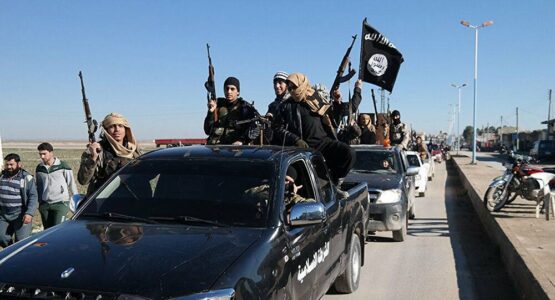
After Islamic State chief’s targeted killing the world is a safer place but the terror threat persists
The threat of Daesh has been largely exaggerated, says an Israeli expert. But the assassination of its leader was a smart decision that contributed to the stabilisation of regional security.
Monday marks the first anniversary since the assassination of Abu Bakr Al Baghdadi, the notorious leader of Daesh*, a terror group known for its ruthlessness and mass executions.
At its peak in 2014, and under his leadership, Daesh established control over vast swaths of land in Syria and Iraq, on territories of which it created a caliphate that had its own military, education institutions and even a monetary system.
Millions of Syrians and Iraqis were forced to live under that regime, and many others were facing the threat of being conquered by the terrorist organisation.
but for Dr. Eado Hecht, a military expert from the Begin-Saddat Centre for Strategic Studies, the threat of Daesh, even when it was at its peak, was largely exaggerated.
“Of course [such groups as] Al Qaeda and Daesh could organise very painful attacks outside the Muslim world, but their overall danger was over-stated. First, they were not capable of conquering and uniting the entire Muslim world under their respective banners. And, second, they were not capable of undermining any Western country or even any of the weaker states of Africa and Asia.”
Nevertheless, Hecht believes the elimination of Al Baghdadi, carried out by US forces on October 26, 2019, was a “smart” move, a decision that made the world a safer place.
“Al Baghdadi had a charismatic effect enabling him to mobilise support his successors do not have. [Had he not been eliminated], Daesh would have become a major threat to its neighbours… today, however, [the group’s] recovery is at just above subsistence level, and virtually only in Syria.”
Following the evaporation of the caliphate, which lost 95 percent of its territory by 2017, and the subsequent elimination of Al Baghdadi, Daesh lost the status of the world’s most dangerous organisation. But its terror is still rearing its head in many parts of the Middle East.
A week ago it was reported that Daesh attacks surged in Africa, despite claims that the group’s threat had been totally eliminated.
Similar reports have also emerged in Egypt’s Sinai peninsula, where authorities are struggling to rid themselves of the Islamic group, and in parts of Syria and Iraq, where battles are still ongoing.
Hecht acknowledges that the threat of Daesh is still there but he downplays their abilities, saying “they might he capable of hurting individuals and even small groups but they cannot affect entire societies”.
“Right now, they are a low-level guerrilla-style threat to the Syrian regime and population. It can harm, hit and run but it cannot conquer, or hold ground and population,” argues the pundit.
In a way, the weakening of Daesh can also be attributed to the efforts made by the international community to curb its threat.
Established in 2014, the alliance against Daesh united various Western states that joined their forces with Russia, Iran and a number of Arab and African countries pursuing a common goal – the elimination of the terror group.
The bloc has eventually achieved its goal. Last February, US President Donald Trump announced his country – together with allies – had managed to establish control over “100 percent” of Daesh’s territory in Syria, paving the way for other losses of the caliphate.
Yet, Hecht, who have been monitoring the conduct of terror groups for years, says their threat will never be fully eliminated.
“Terror is not a ‘thing’, nor is it an ‘ideology’. It is a tool. You can fight those who use it. Or you can reach political compromises with them… You can eliminate their leaders but this is not a panacea. The only way to stop the use of terror is to convince everyone to stop using violence for political or economic purposes… but this is very unlikely,” concluded the expert.
Source: Sputnik News





